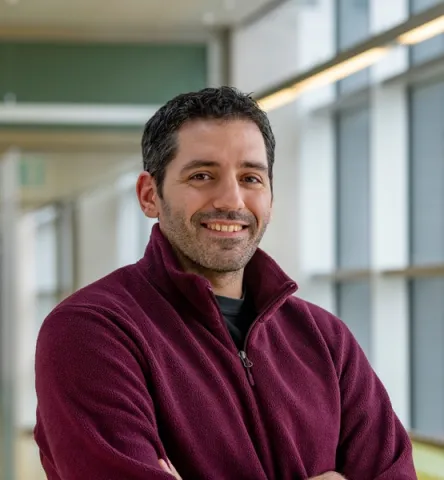About the project
Recent discoveries of exotic forms of light, structured in space and in time, promise novel ways of transferring information, delivering energy, and even manipulating matter. The project will focus on the generation, light-matter interactions, and applications of spatiotemporally structured electromagnetic waves.
Recent breakthroughs in our ability to control the spatial and temporal properties of light have opened exciting new frontiers in optical science. Unlike conventional light waves, spatiotemporally structured electromagnetic fields exhibit particle-like topological features, rapid local field fluctuations, and non-trivial propagation dynamics. These unique characteristics hold transformative potential across a wide range of disciplines, including telecommunications, advanced manufacturing, spectroscopy, and metrology.
This project will investigate the generation, detection, and application of spatiotemporally structured light fields.
It will develop generation and detection schemes employing engineered metasurfaces, as well as heuristic methods inspired by topological and symmetry considerations.
Particular emphasis will be placed on understanding the light–matter interactions of spatiotemporal light fields with complex nanostructures.
By exploiting such exotic light-matter interactions, the project will aim to develop resilient and encrypted modes of information transfer and novel spectroscopic techniques.
References:
- Nat. Communications 12, 5891 (2021)
- Nat. Photon. 16, 523–528 (2022)
- Nat. Communications 15, 4863 (2024)
You will have opportunity to develop advanced skills in:
- experimental photonics
- computational electromagnetic modelling
- application of machine learning and AI
- electron and optical microscopy
- nanofabrication
The School of Optoelectronics (ORC) is committed to promoting equality, diversity inclusivity as demonstrated by our Athena SWAN award. We welcome all applicants regardless of their gender, ethnicity, disability, sexual orientation or age, and will give full consideration to applicants seeking flexible working patterns and those who have taken a career break. The University has a generous maternity policy, onsite childcare facilities, and offers a range of benefits to help ensure employees’ well-being and work-life balance. The University of Southampton is committed to sustainability and has been awarded the Platinum EcoAward.

